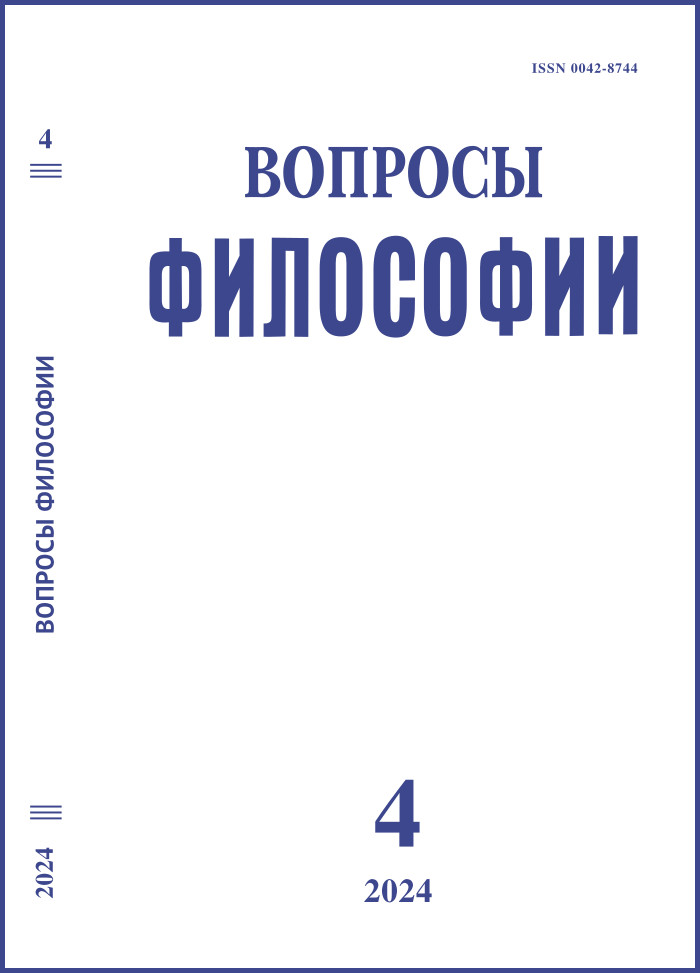The Philosophy of Gustav Teichmüller and His Treatise “On the Immortality of the Soul” (Dedicated to the 190th Anniversary of the Thinker’s Birth)
DOI:
https://doi.org/10.21146/0042-8744-2024-4-158-167Keywords:
Gustav Teichmüller, treatise On the immortality of the soul, critical philosophy, Kantianism, rationalism, logical and epistemological direction of Russian philosophy.Abstract
The article discusses the philosophical concept of the German thinker of the second half of the 19th century Gustav Teichmüller (1832–1888), professor at the University of Dorpat. As a result of a comprehensive study of the treatise On the Immortality of the Soul (1874) by Gustav Teichmüller, the author of this article came to the conclusion that Teichmuller’s philosophy is a variant of criticism. According to Teichmüller, the treatise was supposed to crown by itself a long philosophical tradition of writing treatises on this topic. The philosophy of Teichmüller, expanded by him in this treatise, is shown in the context of critical reading of prominent thinkers of the past, his ideological predecessors, philosophers of the century of the German Enlightenment and representatives of critical philosophy, such as Moses Mendelssohn, Immanuel Kant, Ludwig Heinrich von Jakob. The study of Teichmüller’s ideas was also carried out in the two paragraphs he added to the second edition (1878) in the context of his criticism of idealism and positivism. The final point of consideration of Teichmüller’s philosophy in this article is the demonstration of a certain translation of the ideas of German philosophy on Russian philosophical soil, as well as the creative processing and assimilation of Teichmüller’s ideas in the history of Russian philosophy of the 20th century. The author also examines the relationship of Teichmüller’s philosophical heritage to the logical and epistemological trend in the history of philosophy.

